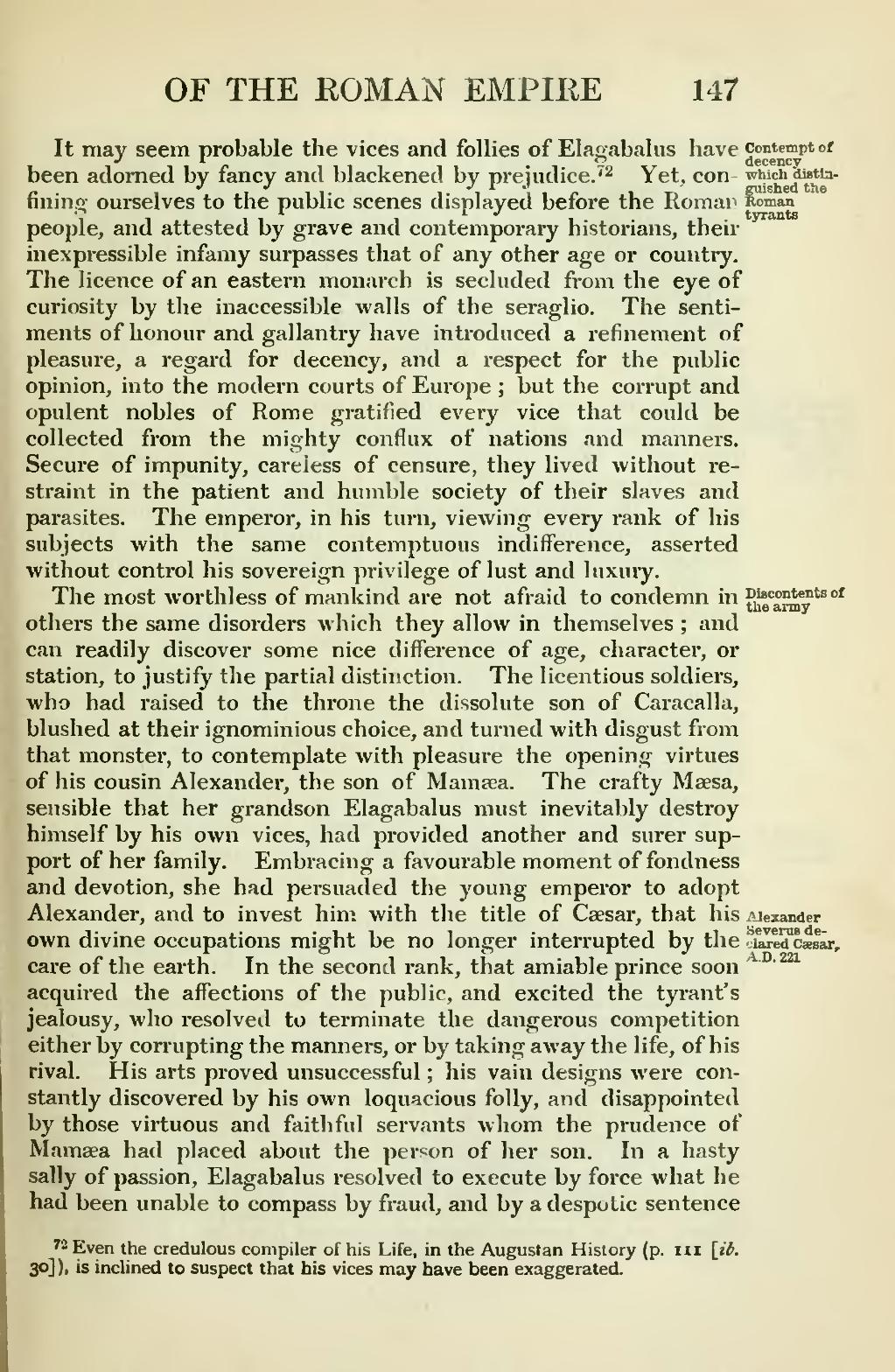Contempt of decency which distinguished the Roman tyrants It may seem probable the vices and follies of Elagabalus have been adorned by fancy and blackened by prejudice.[1] Yet, confining ourselves to the public scenes displayed before the Roman people, and attested by grave and contemporary historians, their inexpressible infamy surpasses that of any other age or country. The licence of an eastern monarch is secluded from the eye of curiosity by the inaccessible walls of the seraglio. The sentiments of honour and gallantry have introduced a refinement of pleasure, a regard for decency, and a respect for the public opinion, into the modern courts of Europe; but the corrupt and opulent nobles of Rome gratified every vice that could be collected from the mighty conflux of nations and manners. Secure of impunity, careless of censure, they lived without restraint in the patient and humble society of their slaves and parasites. The emperor, in his turn, viewing every rank of his subjects with the same contemptuous indifference, asserted without control his sovereign privilege of lust and luxury.
Discontents of the army The most worthless of mankind are not afraid to condemn in others the same disorders which they allow in themselves; and can readily discover some nice difference of age, character, or station, to justify the partial distinction. The licentious soldiers, who had raised to the throne the dissolute son of Caracalla, blushed at their ignominious choice, and turned with disgust from that monster, to contemplate with pleasure the opening virtues of his cousin Alexander, the son of Mamæa. The crafty Mæsa, sensible that her grandson Elagabalus must inevitably destroy himself by his own vices, had provided another and surer support of her family. Embracing a favourable moment of fondness and devotion, she had persuaded the young emperor to adopt Alexander, Alexander Severus declared Cæsar, A.D. 221 and to invest him with the title of Cæsar, that his own divine occupations might be no longer interrupted by the care of the earth. In the second rank, that amiable prince soon acquired the affections of the public, and excited the tyrant's jealousy, who resolved to terminate the dangerous competition either by corrupting the manners, or by taking away the life, of his rival. His arts proved unsuccessful; his vain designs were constantly discovered by his own loquacious folly, and disappointed by those virtuous and faithful servants whom the prudence of Mamæa had placed about the person of her son. In a hasty sally of passion, Elagabalus resolved to execute by force what he had been unable to compass by fraud, and by a despotic sentence- ↑ Even the credulous compiler of his Life, in the Augustan History (p. 111 [ib. 30]), is inclined to suspect that his vices may have been exaggerated.
